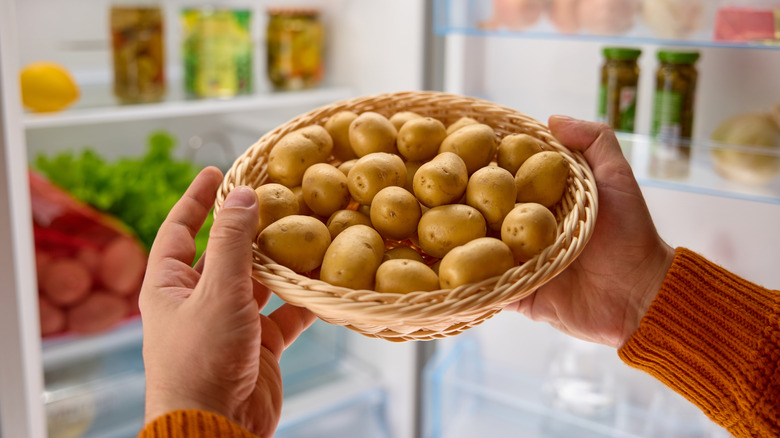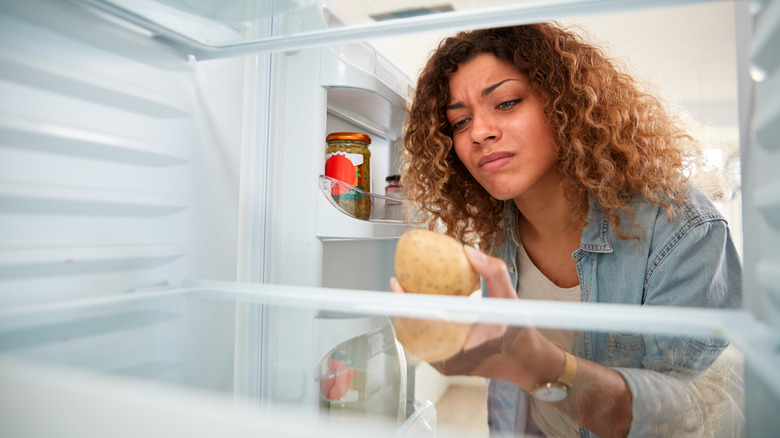Why You Should Never Store Potatoes In The Fridge
At first glance, your refrigerator seems like the perfect spot for storing just about anything fresh: crisp greens, leftovers, condiments, and the occasional midnight cheese snack. But when it comes to potatoes, your fridge is the last place they belong. It's not just about taste or texture; it's about chemistry. Storing potatoes in cold temperatures can actually trigger chemical reactions that affect their flavor, nutritional value, and even safety, which is why spuds and refrigeration just don't mix.
These starchy tubers react to temperature changes in all kinds of complex ways. When you stash your potatoes in the fridge (typically kept around 35 to 40 degrees Fahrenheit), their natural starches begin converting into sugar. This process, called cold-induced sweetening, might sound harmless and maybe even delicious (after all, who doesn't love a sweet potato?), but it's bad news for regular white, yellow, or russet potatoes.
As the starch transforms into sugar, the flavor of the potato changes. Instead of that classic earthy, nutty flavor, you get a weirdly sweet undertone that throws off the balance in savory dishes like millionaire mashed potatoes, gratins, and home fries. The texture also suffers; those sugary potatoes can get mealy, and they will brown too quickly when cooked. But even worse than the off-flavor and gritty texture is what happens when those sweetened potatoes hit very high heat.
Refrigerated potatoes are potentially harmful
Here's where food science gets serious. When potatoes that have undergone cold-induced sweetening are fried, roasted, or baked at high temperatures, the extra sugars react with naturally occurring amino acids in a process called the Maillard reaction. It's the same reaction that gives a rich flavor and brown color to seared steaks, toasted bread, and roasted coffee.
But with those sugar-heavy potatoes, the Maillard reaction doesn't just create delicious flavor – it also creates acrylamide, a potentially harmful compound that has been linked to cancer in animal studies. While occasional exposure isn't likely to pose major health risks, the European Food Safety Authority and other public health organizations have recommended minimizing acrylamide intake whenever possible. One easy way? Don't refrigerate your potatoes. And they're not the only picky produce — there are actually several foods you should never store in the fridge.
So where should you store potatoes? Your goal is to find a spot that's cool, dark, dry, and well-ventilated: think cellar, basement, pantry, or even a low cabinet away from the stove or sunlight. This keeps the potatoes from sprouting or turning green (also bad) and limits those problematic starch-to-sugar conversions. Your fridge may be a cold comfort zone, but it's a hostile environment for potatoes. Treat your spuds with the respect they deserve, and they'll reward you with perfect mashes and the crispiest fries.

